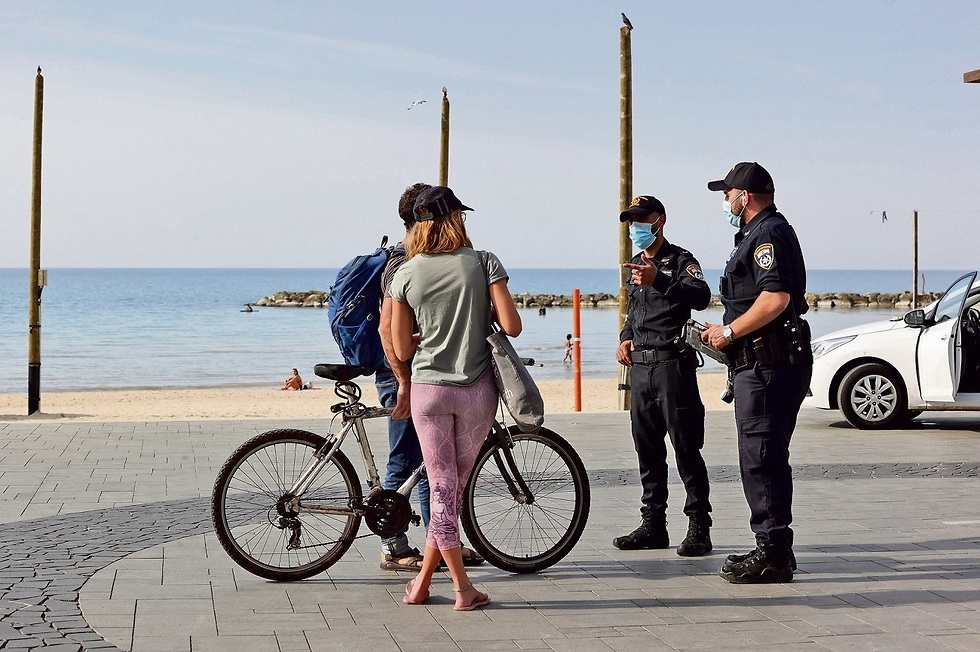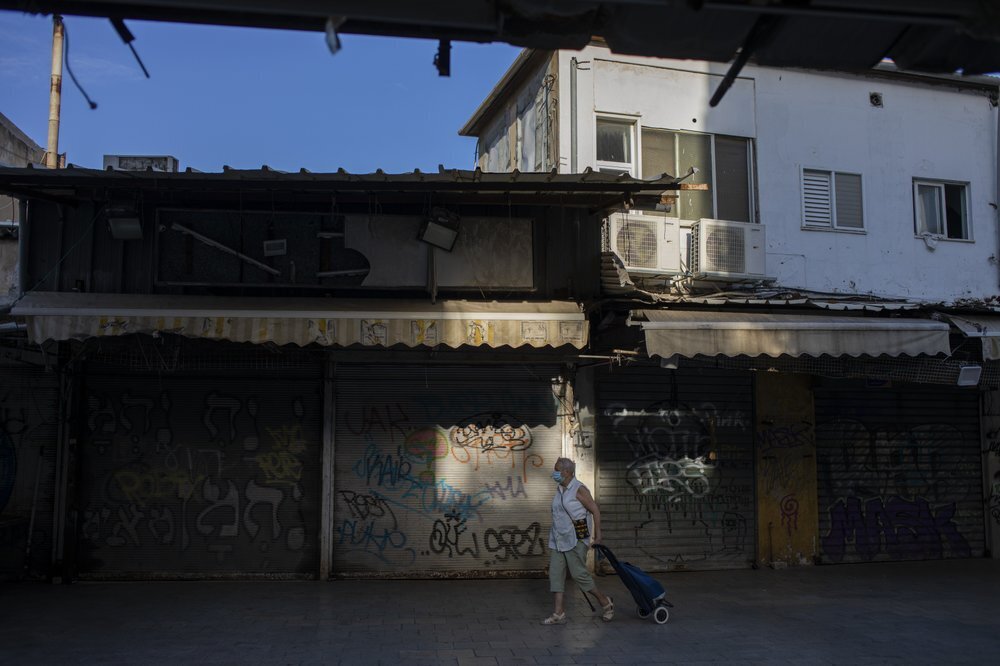It seems like the term "lockdown" has become taboo in Israel — a synonym for disaster — even though it is one of the most effective tools in a state's arsenal to battle a surging pandemic, but only if it is being employed wisely.
A two-week lockdown could significantly bring down morbidity, especially in countries with high vaccination rates.
2 View gallery


Police enforcing travel restrictions during Israel's third coronavirus lockdown
(Photo: Oz Moalem)
Israel's first lockdown in March 2020 and its third in December later that year were extremely effective in reigning in the spread of the disease.
Some may say that such a measure is high-handed and entails a heavy toll on the country's economy but it's still a long haul from the far-fetched NIS 200-billion price tag some slap on it.
According to Central Bureau of Statistics and Finance Ministry data, the three previous lockdowns have cost the state around NIS 50 billion in GDP loss and a similar sum in government aid to those who felt a financial crunch as a result.
Granted, this number is substantial, but it is marginal when compared with the massive economic burden of the excess morbidity and deaths the lockdown prevented.
Prime Minister Naftali Bennett and his government must draw up a plan for a possible lockdown during next month's High Holidays while taking into account every possible aspect of it, without giving in to pressure groups or chasing political clout.
In order to mitigate the lockdown's noxious effects on Israeli society and the economy, it would be prudent to come up with sound and practical aid mechanisms and not settle for unrealistic statements like those sounded by treasury officials along the lines of "there is no way workers on unpaid leave will receive unemployment."
2 View gallery


A woman wearing face mask walks past closed shops in Tel Aviv during the lockdown in 2020
(Photo: AP)
An alternative proposal by the ministry had raised — dubbed the "German Model" — would see the state pay employers to keep their workers in case their business shuts down due to the lockdown or any other restrictions.
Germany implemented this plan at the beginning of the pandemic and is still paying a special grant out of the state coffers to every employer who declares they are intending on firing their workers to at least keep them part-time.
This plan received much praise at first but the initial enthusiasm soon faded as lockdowns and restrictions prolonged.
The International Monetary Fund (IMF) and OECD published reports at the tail end of 2020 that showed an increased push for a more simplified furlough scheme that would be more transparent and would involve less red tape.
Once Israel's economy opened and began to recover from the lockdowns, the number of furloughs dipped from several hundred thousand to just 35,000 as of now.
The option of a lockdown in September is still on the table. Until then, the government must prepare quick and feasible solutions to alleviate some of its potential harm to the economy and workers.
Assuring public statements are not a substitute for practical solutions.

